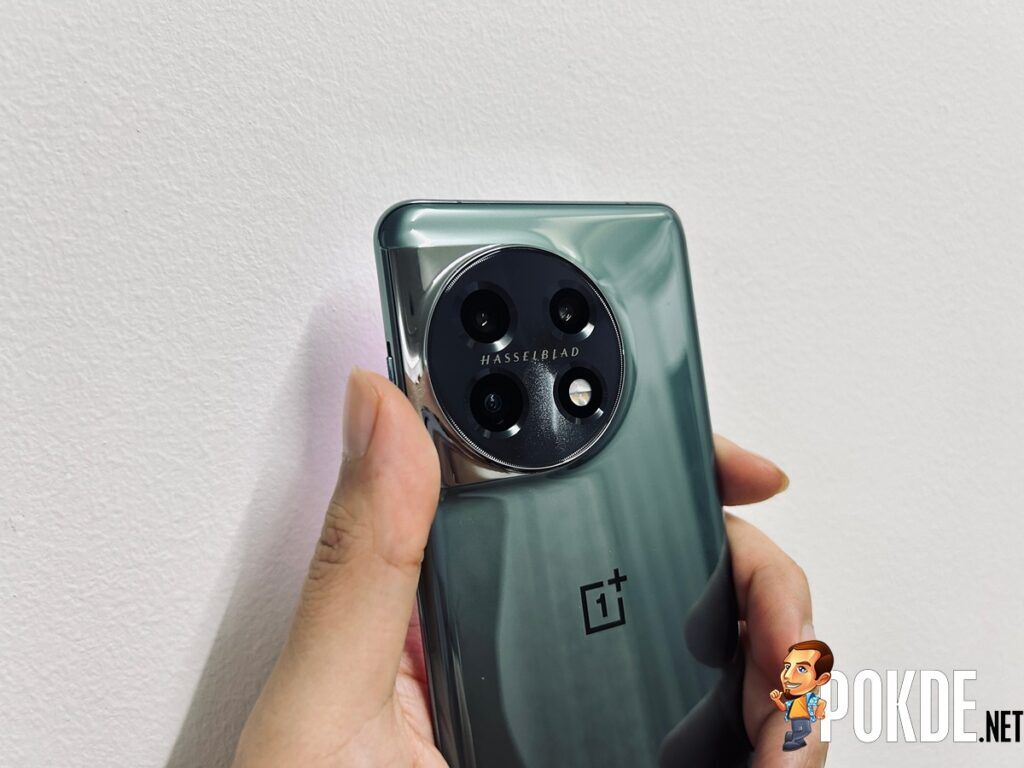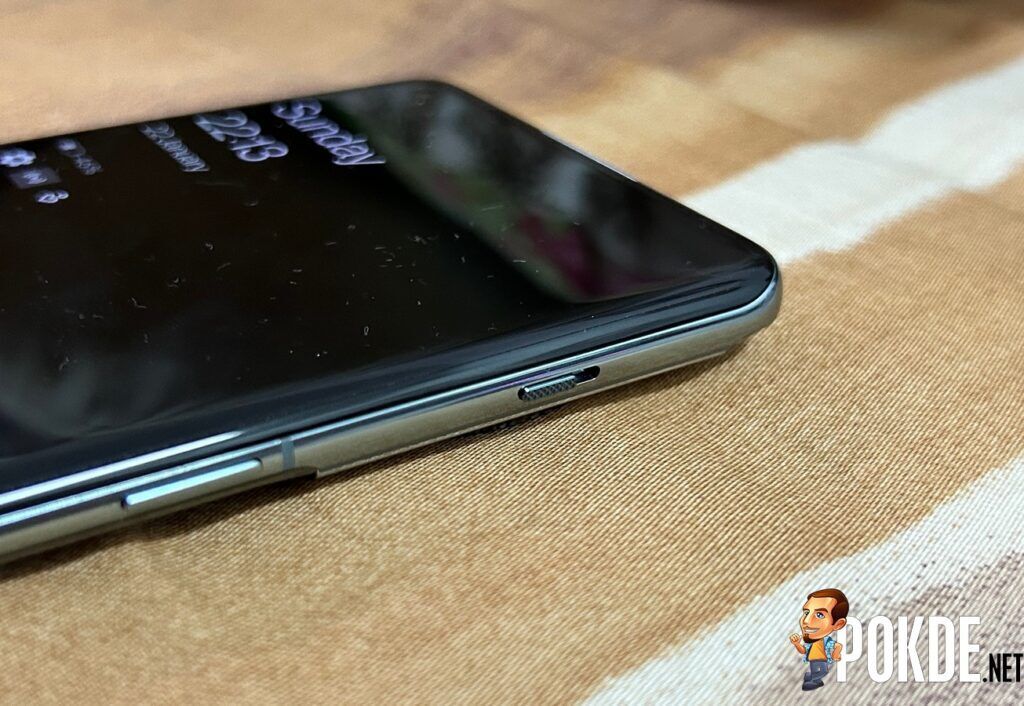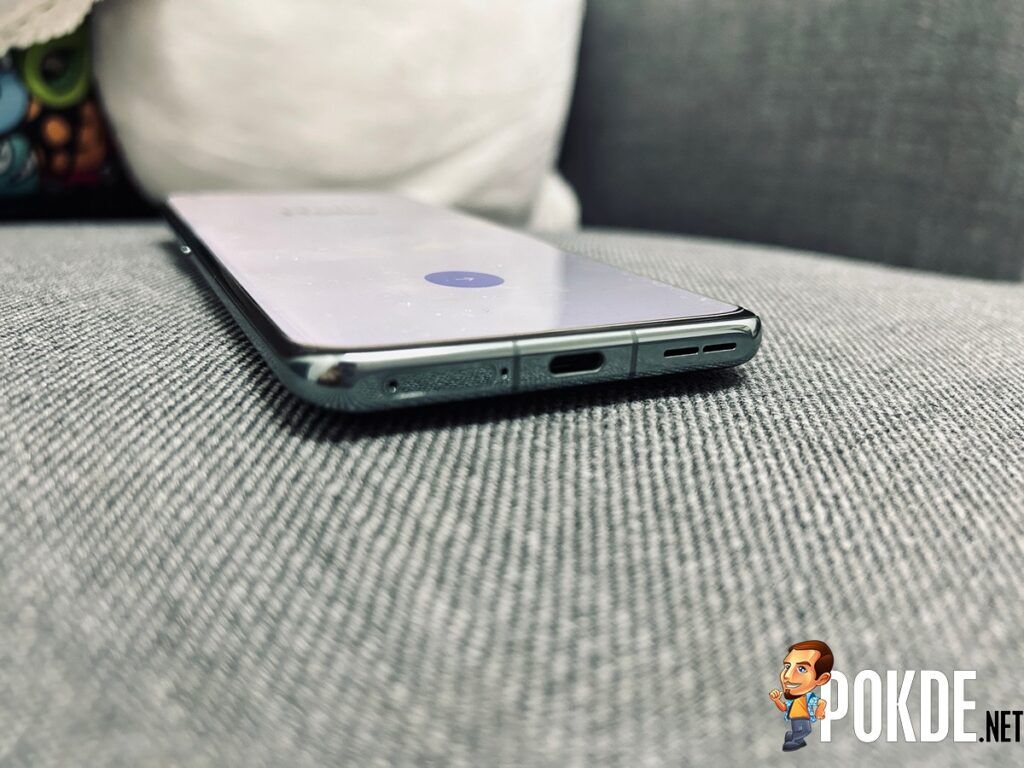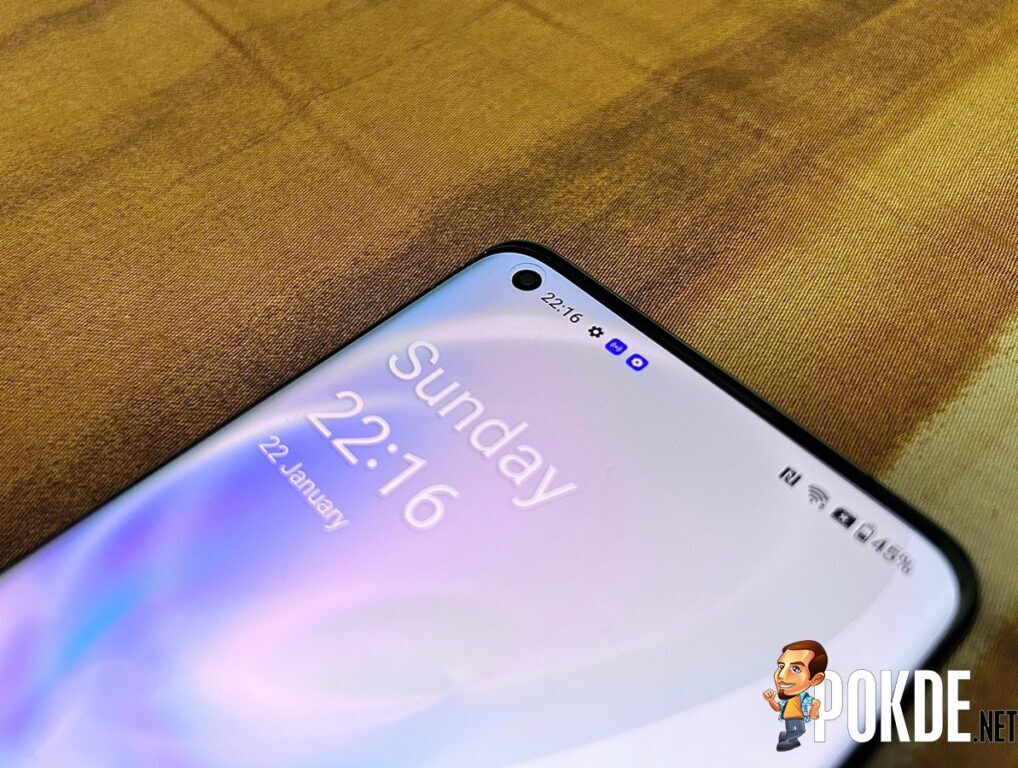OnePlus 11 Review – Powerhouse At A Good Price
-
Appearance - 8/10
8/10
-
Efficiency - 7.5/10
7.5/10
-
Features - 8/10
8/10
-
Materials - 8/10
8/10
-
Performance - 8.5/10
8.5/10
-
Portability - 8/10
8/10
-
User Experience - 7/10
7/10
-
Value - 8/10
8/10
Summary
The OnePlus 11 has flagship-level performance and capabilities without the usual flagship-level price. However, there is a reason why it managed to keep prices low as you will be missing out some features here and there.
Overall
7.9/10Pros
+ Reliable performance with no thermal issues (in standard mode)
+ Above average camera quality overall
+ Excellent battery life (in Full HD, adaptive 120Hz)
+ Improved longevity with 4 years Android OS updates and 5 years of security updates
+ OxygenOS 13 is smooth and user-friendly with minimal bloatware
+ Confidence-inspiring look
+ Alert Slider is always great to have
+ Bright and excellent display with 120Hz adaptive refresh rate
+ More affordable compared to most flagships
Cons
– Can get very hot in high performance mode
– Battery life sees significant cut in 2K resolution
– Definitely needs a case to protect the thick camera housing
– Subpar stereo speakers
– No wireless charging
– No official IP rating
Unboxing the OnePlus 11

Starting off the OnePlus 11 review with the unboxing, the packaging is clad in red with a minimalist design, which feels very apt since it’s launching around the time of the Lunar New Year. Inside the box, you can find the following items:

- 100W SUPERVOOC power adapter
- Quick Start Guide
- Welcome Letter
- Safety Information and Warranty Card
- SIM Tray Ejector
- USB Cable (Type-A to Type-C)
- OnePlus stickers
- The OnePlus 11 smartphone itself
Specifications
| CPU | Qualcomm SM8475 Snapdragon 8 Gen 2 Octa-core 1 x 3.2 GHz Cortex-X3 & 2 x 2.8 GHz Cortex-A715 & 2 x 2.8 GHz Cortex-A710 & 3 x 2GHz Cortex-A510 4 nm |
| GPU | Adreno 740 |
| Memory | 16GB LPDDR5X |
| Storage | 256GB UFS4.0 |
| Display | 6.7″ Super Fluid AMOLED LTPO (3216 x 1440), 1B colors, 20:1:9, Gorilla Glass Victus, 525ppi Dynamic 120Hz Refresh Rate, up to 1000Hz touch response rate, 1300 nits peak brightness, Dolby Vision, HDR10+ |
| Camera | 50 MP, f/1.8, 24mm (wide) Sony IMX890, 1/1.56″, 1.0µm, PDAF, OIS, 6P lens 48 MP, f/2.2, 115˚ (ultrawide) Sony IMX581, 1/2″, AF, 6P lens 32 MP, f/2.0, (telephoto) Sony IMX709, 1/2.74″, PDAF, 2x optical zoom, 6Pn lens Hasselblad Camera for Mobile, Dual-LED flash, HDR, panorama 8K@24FPS, 4K@30/60FPS, Full HD@30/60/240FPS, Auto HDR, gyro-EIS |
| Selfie camera | 16 MP, f/2.45, 25mm (wide) Sony IMX471, 1.0µm, fixed focus, 5P lens Full HD@30FPS, gyro-EIS, Auto HDR, panorama |
| Connectivity | Wi-Fi 802.11 a/b/g/n/ac/6, dual-band, Wi-Fi Direct, hotspot Bluetooth 5.3 USB Type-C 2.0 GPS with A-GPS, Up to tri-band: GLONASS (1), BDS (3), GALILEO (2), QZSS (2) NFC, eSE, HCE 5G |
| Battery | 5,000 mAh Fast Charging 100W |
| Dimensions | 163.1 x 74.1 x 8.53 mm |
| Weight | 205g |
| Colour | Titan Black, Eternal Green |
Performance

Starting off the benchmark suite with Antutu v9, the Snapdragon 8 Gen 2 powering the OnePlus 11 zoomed past every device in the list, both in normal and high performance mode. This is how a flagship chip should be. For most users, it’s best to consider the standard mode as the expectation on its performance as you would likely not even use high performance mode, but we’ll explain why in a later part of this section.

Moving on to Geekbench 5, the OnePlus 11 managed an admirable score but it’s interesting how the single core portion loses out to its preceding chip until it goes to high performance. Even then, it doesn’t come close to beating the Apple A16 Bionic chip powering the iPhone 14 Pro series. This doesn’t necessarily mean the chip isn’t capable of beating it however as the OnePlus 11 might not be fully optimized for the chip so we will have to wait for other devices that uses the same one.

Moving on to 3DMark Wild Life Unlimited, the OnePlus 11 has a very strong showing but it does seem odd as to why the standard and high performance scores are about the same. Further analysis reveals that this is due to thermals as it runs consistently in standard but in high performance, it throttles pretty quickly. To give you an objective view, the thermal stability on both modes are 99.8% and 39.5% respectively, meaning that the device saw a drop in performance for the most part of the test in high performance.

It gets a bit strange in PCMark Work 3.0 as the score seems to be noticeably lower than expected, both in high performance and standard modes. This makes me wonder about the device’s optimization as not only should it score higher given the chip, it’s not far off from the much weaker Snapdragon 695. Regardless, it’s still a very capable device and should not have any issues with everyday tasks.

Lastly for the battery life, this is an area of concern as many have claimed the battery life to be bad but based on our findings, that depends. With adaptive 120Hz refresh rate enabled, the OnePlus 11 lasted 11 hours and 34 minutes (694 minutes) in 2K resolution in PCMark’s Work 3.0 endurance test but lasts significantly longer in Full HD, at 14 hours and 8 minutes (848 minutes). In other words, the battery life can be good as long as you use a resolution lower than 2K, and most people wouldn’t be able to tell the difference between Full HD and 2K in that screen size anyway.
In case you’re wondering about how fast the included 100W charger is, in short, it’s really fast. For a more objective look from 2% battery, I’ve included the numbers below here:
- 15 minutes = 61%
- 27 minutes = 100%
In case you might be considering older but still reliable smartphones to save money, check out our OnePlus 10T review by clicking right here.
Camera
The cameras on the OnePlus 11 is certainly above average across the board. However, the result can vary from time to time. The main camera generally does well overall with excellent detailing and colours but has issues with motion at times, while the ultrawide does great in broad daylight and still produce decent results in low light, albeit with some distortion and slower autofocus performance. Telephoto is great up until 5x zoom where details start to fall off and it suffers quite a bit in low light shots.
Looking at the cat picture, all three cameras do not capture the fur with a very fine detail on each strand but the main camera still managed an admirable result. A good number of the aforementioned issues can still be prevented if you’re willing to use manual settings so honestly, I’m quite pleased with the cameras. There are smartphones with better cameras out there, but you will be pleasantly surprised how well the OnePlus 11 fares.
The Good

For those of you who have yet to use a OnePlus device, it uses a customized version of Android known as OxygenOS. In the case of the OnePlus 11, OxygenOS 13 (based on Android 13) has a Pixel-esque look with minor UI differences. Personally, it has a minimalist look with better separation of signal bars and a more practical approach with toggles. Liking this or not is subjective what I can say for sure is that it’s smooth, easy to use and has minimal bloatware.
Furthermore, the company has addressed a major issue with its predecessor, with the OnePlus 11 now coming with 4 years of Android upgrades and 5 years of security updates guaranteed. This puts it on par with Samsung flagships, which were leading the market in this area and allowing people use it for longer period of time without needing to upgrade to a new device (provided nothing breaks down along the way).

The OnePlus 11 has a new look, though it’s not a big departure from its predecessor. From the front, it looks just like the OnePlus 10 Pro, though the top and bottom bezels seem to be a tiny bit thicker. When you move to the back, you can see that this one has a rounded camera housing with the Hasselblad logo taking centerstage. I prefer this over the square-ish cutout as I feel that it looks more proper for a camera, exuding confidence in its capabilities and giving an overall more premium look.

In terms of practicality, it’s not a fingerprint magnet despite the glossy finish surprisingly. Lastly, having the Alert Slider on the side makes it very convenient to change it from Ring, Vibrate Only, and Silent without going into the smartphone itself.
Arguably the best part about the OnePlus 11 is its display. It’s a whopping 6.7-inch Super Fluid AMOLED LTPO display with Gorilla Glass Victus, which brings better screen protection right out of the box with an adaptive refresh rate from 1Hz all the way to 120Hz. Colour reproduction is excellent and 120Hz is really smooth, with the adaptive nature ensuring that it doesn’t eat up on battery life. It also has an under-display fingerprint scanner, which works accurately at an insanely fast speed, which is great. It’s not the brightest display compared to other flagships, but it’s certainly more than enough for most people.
The Bad

While it not being a fingerprint magnet would make it viable to use without a protective case, the thickness of the camera housing makes it a necessity unfortunately. The gap between the rear and the peak of the housing can make it wobble a bit when placed on a flat surface, and you definitely need the added protection for the camera more than anything else. In other words, if you do get a case for it, make sure it’s one that provides adequate protection for the camera housing and you’ll be fine.
On paper, the use of the “Dual Reality Speakers” on the OnePlus 11 sounds promising but in reality, its implementation here is subpar. Not only is it noticeably softer compared to most other smartphones even within the midrange segment, the sound isn’t balanced as the bottom speaker ends up being a little bit louder than the top. It’s not a dealbreaker as it wouldn’t lead you to missing out on calls / notifications, nor is it imbalanced enough to give a bizarre experience. However, I do expect this to be improve in its successor model.

Just like its predecessor, the OnePlus 11 doesn’t have an official IP rating. This doesn’t mean that it can’t withstand some degree of dust and water however as it’s likely done to keep costs low again as obtaining a rating does have a price. With that being said however, do be extra careful with it as having any form of water damage would not be covered under warranty, so you will have to pay out of your own pocket should it ever occur.
Lastly, the OnePlus 11 doesn’t come with wireless charging support, likely as a cost-cutting measure. Personally, this is a minor one as the included charger, as well as the smartphone’s charging capabilities, allow for superbly fast charging speeds so you don’t have to be connected to a wire for long. However, if you’re the kind of person who would prefer the convenience of charging without fiddling around with cables, then this isn’t the one for you.
OnePlus 11 Review

The OnePlus 11 has flagship-level performance and capabilities without the usual flagship-level price at USD $799. However, there is a reason why they managed to keep prices relatively low as you will be missing out some features here and there. That shouldn’t scare you away from this however as it’s still a reliable daily driver with a premium build and all-day battery life.
At the end of our OnePlus 11 review, I award this smartphone with our Silver Pokdeward.
Big thanks to OnePlus for sending us this smartphone for the purpose of this review.












































































